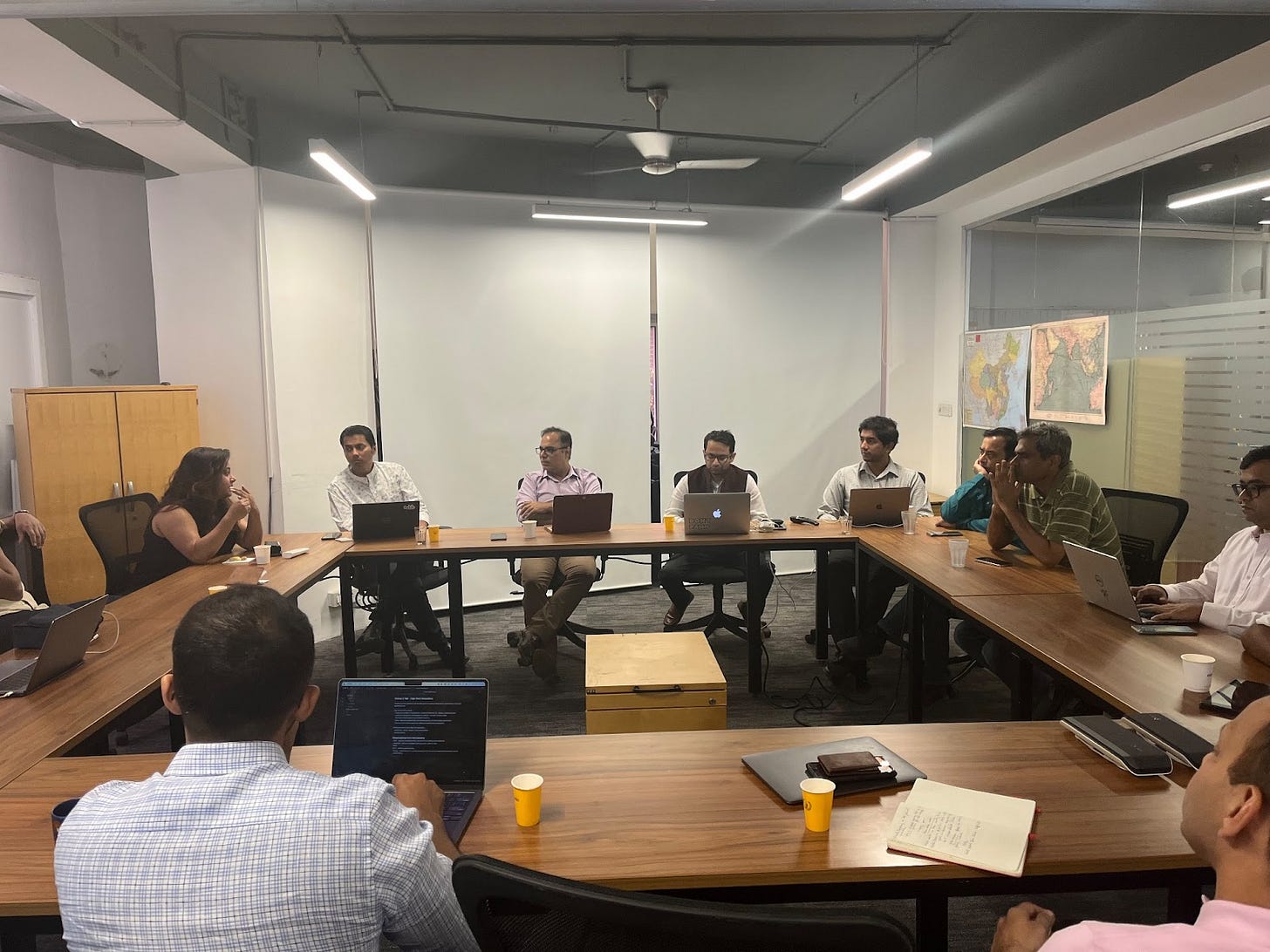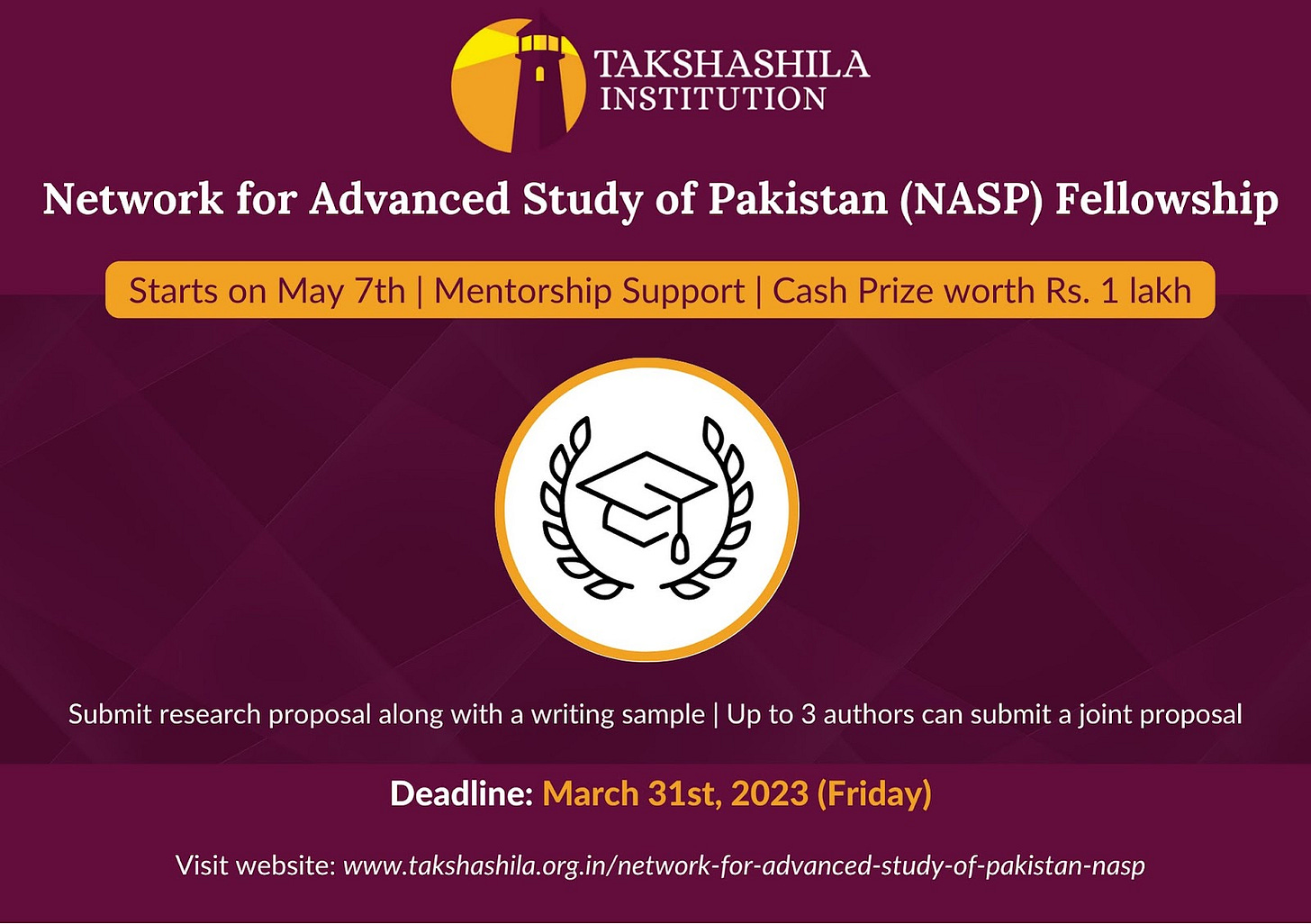WHO Pandemic Treaty
Dear Reader,
Welcome to the Takshashila Dispatch. In this edition, we cover our work on the WHO’s proposed pandemic treaty, research collaboration in the G20, the Indian government’s decision to create new battalions of ITBP, raising protein intake in diets, and digital IDs.
WHO Pandemic Treaty
The World Health Organization (WHO) has proposed a new international treaty to strengthen global cooperation and preparedness for future pandemics. The treaty would establish a framework for sharing data, resources, and technologies, and would also aim to improve early warning systems, research, and development of medical countermeasures.
Takshashila’s latest discussion document ‘WHO Pandemic Treaty – Proposed Zero Draft’ by Shambhavi Naik and Saurabh Todi examines various provisions of the zero draft of the treaty and sets the context for the reader.
India’s G20 Presidency: Strengthening Research Collaboration
Strengthening research collaboration has been identified as a core area of cooperation for India’s G20 Presidency. The Takshashila issue note drafted in September 2022 by Shambhavi Naik, as a submission to the Government of India on potential steps to accelerate this cooperation, has been recently published.
The note provides specific recommendations on the following issues:
Opening up access for easy transfer of peer-reviewed research
Increasing accessibility to research conferences and meetings for developing countries and LDCs
Creating regional consortiums to collaborate over research-specific target areas
Securing research supply chains
India’s 7 New ITBP Battalions
Is India’s decision to create 7 new battalions of Indo-Tibetan Border Force (ITBP) to guard its borders with China a result of its psychological domination by China? In his weekly column for ThePrint, Lt. Gen. Prakash Menon offers his take:
It should be clear to India’s strategic planners that after a long period of creating infrastructure and military wherewithal in Tibet, China is using the boundary dispute instrumentally to force India to expend its valuable resources. This move is part of its larger strategy to contain India in the sub-continent and inhibit the growth of its maritime power. In territorial terms, salami slicing is its preferred methodology. There is no reason why China should embark on any large offensive at the cost of ambitious pursuits like the takeover of Taiwan.
Operationally, this can be better countered by technology-based surveillance and small groups of foot soldiers. It can also be addressed by applying military power offensively—albeit in a limited manner—to occupy unoccupied and always available territories. Like India, China, too, cannot occupy permanent posts along this vast border. Therefore, the ITBP raising seven more battalions is doctrinally questionable and worse, misses the larger picture of geopolitical power play.
Nutrition & Access to Protein
Protein malnutrition has serious long-term effects on the growth and development of a child. In an article for News18, Shambhavi Naik writes on how India can meet the challenge of ensuring protein adequate diets:
These challenges highlight the need for innovation in policy governing the inclusion of protein in Indian diets. The first policy intervention has to centre around awareness of protein sources in the diet. These should include both vegetarian (for example soy) and non-vegetarian protein sources. The importance of protein intake, particularly for pregnant and lactating women and growing children, needs to be emphasised. Protein deficiency in adults may lead to weakness and delays in wound healing and, in the long term, can drive lifestyle diseases such as diabetes.
The lack of appropriate protein intake puts children at risk of poor brain development, low immunity, and increased infections. Poor nutrition for a pregnant mother and infant can have inter-generational impacts, hampering proper growth for future children as well. These risks have to be communicated to families so that they can prioritise nutrition and protein intake in their diet.
Digital IDs as a Digital Public Good
The World Bank’s Identification for Development (ID4D) initiative estimates that around 850 million people in the world do not have official legal identification. That is not to say the rest of the 7 billion are covered under robust identification systems. Lack of identification leads to denial of services, benefits, and opportunities.
In an episode of All Things Policy, Shrikrishna Upadhyaya and Ritul Gaur (IIC Fellow, MEITY) speak to Jonathan Marskell (Senior Program Officer, ID4D) on ID4D’s initiatives around promoting Digital IDs. They discuss the potential of digital ID systems to become digital public goods and the principles of identification for sustainable development.
Takshashila Hosts the First Church Street Forum on Tech Policy
The Takshashila Institution organised the first edition of the Church Street Forum on Tech Policy on Friday, March 3, 2023. The roundtable discussion saw the participation of members from India Stack, venture capital firms, tech companies, academia, and digital rights organisations.
The discussion focused on India’s ability to harness its technological prowesspowers to boost national power and influence geopolitics in a meaningful way. The aAvenues for engagement with domestic policymakers and collaboration with international partners were also discussed.
Apply for the NASP Fellowship
The NASP Fellowship aims to create high-quality scholarship & knowledge of Pakistan by nurturing new generations of analysts in academia, think tanks, media & industry.
NASP invites applications from researchers from any background, including from universities, research institutes, media, government services, and industry, who are enthusiastic about undertaking new research on Pakistan.
Prospective fellows must either be working or studying in India, have at least an undergraduate degree, and be proficient in English.
NASP fellows will undertake research in one or more of the following areas: economy; defence, geopolitics; environment; education; technology; society; and sub-national politics.
That’s all from us this week. Take care!







